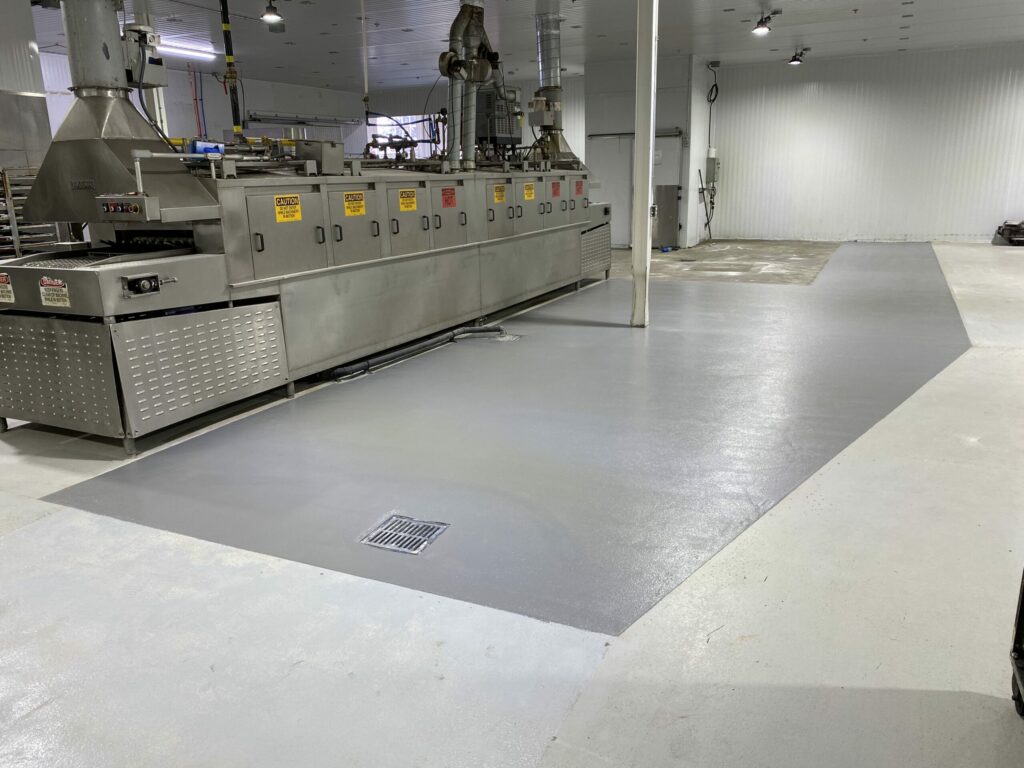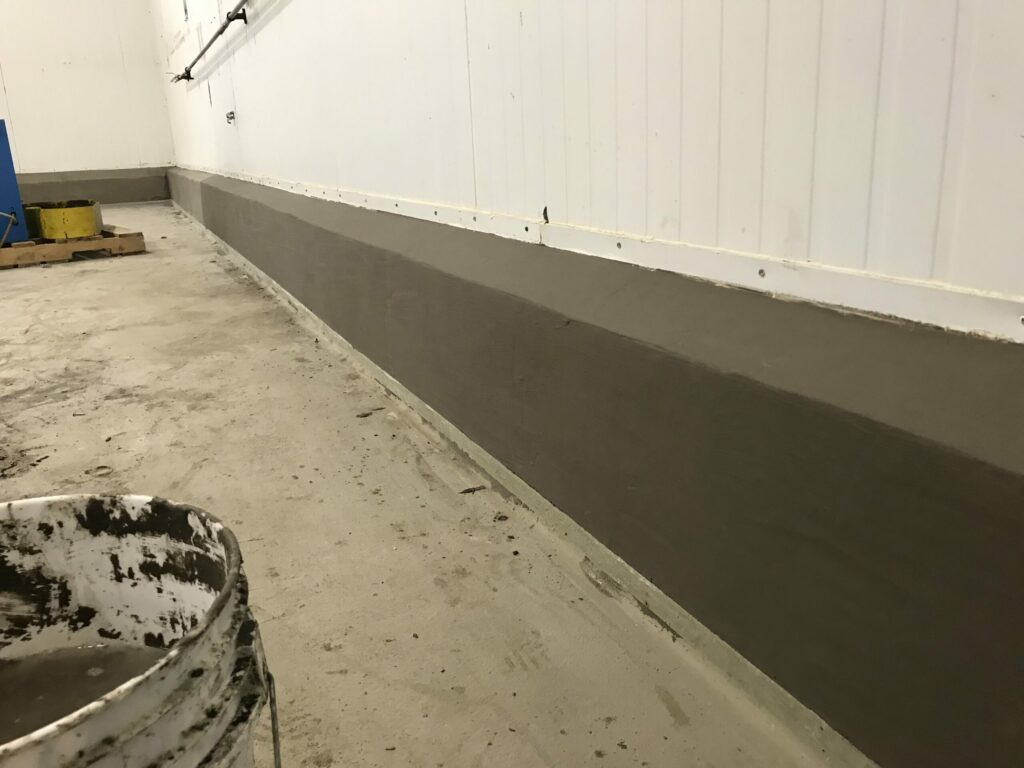Are you interested to know about the benefits of using polyurethane floor coating in commercial buildings? Great! I am going to talk about PU and its advantages in detail. So, let’s move to increasing your knowledge.
Polyurethane coatings are highly durable, glossy, heat resister, and protective layers commonly employed in numerous industrial and commercial facilities.
This kind of coatings can be applied in a range of environments and are usually employed as a shielding topcoat. The floor surfaces of office buildings, body shops, shopping centers, aircraft hangars, and bowling alleys are often layered with polyurethane. Moreover, polyurethane is usually utilized to make closed parts, re-production runs, high volume, or prototypes. Their size ranges from 2 grams to 2000lb parts.
It tolerates abrasion and can increase the surface durability, preventing it from abrasion. PU coatings add a sleek finish and retain their colour. Because polyurethane makes the material durable and stops erosion. Concrete supports and steel supports are sprayed with a PU coating throughout construction.

Protection:
Completing polyurethane with epoxy primer forms a smooth protective layer on any surface on which they are put on. This layer is practically invincible to environmental elements such as salts, ultraviolet light, and moisture. Therefore it prevents the climatic aspects from affecting the surface.
When polyurethane material is mixed with epoxy primer, it offers protection against erosion. It is particularly useful to protect sand and salt from damaging buildings and other constructions in coastal areas.
This industrial grade flooring also protects from chemicals that damage steel and concrete. In addition, it keeps bird droppings, harmful bacteria, debris, and dirt away from building materials.
These advantages are due to the fact that polyurethane flooring is widely employed in the construction industry. So choosing it is to take several risks that can be petite coating life span and expensive in terms of collective maintenance costs.
Resistance:
Resistance to Alkalis and Solvents: Similar to epoxies, some chemical reactions only have fewer effects on polyurethane products. For solvent and oil contact areas, PU is the best choice.
Resistance to Extremes of Temperature: The elasticity of a polyurethane material derives from another advantage. When the resin reaches cold form hot rapidly, it flexes rather than breaking and brittle. It can be very significant for certain project-specific sites.
Abrasion Resistance: This kind of finishing is less scratchable as compared to the epoxy finish. This certifies that the floor retains its aesthetic characteristics for a long time than epoxy coating undergoing comparable treatment.
Aesthetics:
Using this type of industrial floorings can enhance underlayer material’s exquisiteness and natural aesthetics. Polyurethanes can make floor tops reflect through mirror finishes or wet in metals and solid colours. For internal wood textures, clear polyurethane coatings can increase the beauty of the place and preserve the appearance of fine cabinets and furniture.
Moreover, polyurethanes can produce a lustre that can create a deep reflective glow that revives the surfaces of stone surfaces. In construction facilities, polyurethane finishes are employed on metal cementitious and metal shells to incorporate not only long-time finishing but also to advance graffiti resistance and cleanability.
Adaptability:
Polyurethane is one of the most versatile floor coating materials. It can be applied to non-ferrous metals, structural steels, engineered plastics systems, engineered foam systems, and many others. When cured, PU finishes don’t have harmful chemicals. Therefore you don’t need to worry if it is suitable to utilize this finishing material.
Its’s versatility is the major that it is the most widely applied floor coating material in all sorts of construction, such as adhesives, coatings, and sealants.
These coatings are also adaptable in their range of finishes. They are offered for the commercial architectural market in a full spectrum of shades ranging from lustrous to matte/flat, metallic, pearl, and solid colours. Polyurethane coverings are often applied using a roller, brush, or spray.
Safety and application:
Polyurethane is comprised of natural molecules known as monomers. It is derived from the word “polymer” – a long wide chain of repeating monomers. Once cured, it doesn’t emit dangerous vapours. Therefore, it is harmless for animals, people, and the environment.
It is imperative that applicants and those in the vicinity wear proper personal protective equipment when spraying polyurethane. Polyurethanes are very innocuous once they are healed.
Polyurethane coatings should be employed by skilled applicants who have the skills, knowledge, and proper equipment to apply polyurethane fines safely and successfully.
Energy Saving and Better Durability:
The exceptional weather protection that polyurethane offer to construction materials expands the resilience of substrates, thereby extending lifespan service. Because of the strongly bound resin structure, this coating does not erode easily as other ordinary coatings and paints that aren’t sturdy.
By simply adding a polyurethane layer, you can add several years to the building’s outdoor life cycle. Due to these, polyurethane coatings are employed on various exteriors of commercial buildings such as windowpanes, doors, metal roofs, metal stairwells, structural elements, signage, and building panel handrails.
On many buildings, playground equipment, stairwells, and handrails, polyurethane finishes can incorporate infrared heat reflections to decrease the temperature of numerous exposed metal surfaces to stop injuries from hot surfaces. It can also help decrease the cooling charge of the building.
Life-Time Maintenance Cost:
A key advantage of polyurethane coating is the probability of renewing the upper coat without the entire elimination of the flooring system. They have to be changed at the end of their lifecycle as compared to other flooring solutions. The process is known as “re-topping”.
These flooring systems are particularly useful for long-term use of up to 40 years. Many other floor systems need to be put back at least once during this time.
Conclusion:
Hence, I have shared the advantages of using polyurethane floor coating in commercial buildings. It is ideal for conditions where not only protection is required but looks beautiful. Advantages include protection, resistance, adaptability, energy savings, lifetime maintenance cost, and some others. I hope this guide will help you to get a deep insight.

